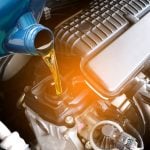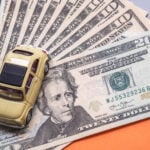A misfire sounds like a mishap, rightly so when it happens with your car’s engine. Suppose you experience an unusual hesitation with your car’s engine while accelerating, and if it enters a slow mode and shakes while accelerating, you can suspect an engine misfire. What are the possible causes, and how much does it cost to fix an engine misfire? Read about it here.
What Is an Engine Misfire?
An engine misfire occurs when the cylinders fail to produce power. While idling, you may experience slow and shaky acceleration and vibration. A warm or cold engine can also cause a misfire.
To understand what causes an engine to misfire, we need to have a quick look at how an engine functions.
Firstly, the engine requires the right proportion of air and fuel, which is crucial to its smooth functioning. For instance, a change in the ratio will cause improper ignition in the combustion chamber, which is also known as a cylinder 1 misfire.
Secondly, this can also occur if the piston does not descend, halting the crankshaft. Meanwhile, a misfire can happen with any of the cylinders. However, the most probable one is the misfire in cylinder 1.
The cylinder 4 misfire is recognized as the P0304 error code and is a reason for engine failure.
What Causes an Engine to Misfire?
Misfires should not be overlooked, even if they occur only occasionally, because they indicate that something has to be fixed or replaced. These are the possible causes of an engine misfire.
- A fault in the spark plugs or wires
- Damaged ignition coil
- Broken piston rings
- Burnt or bent valves
- Chipped valve springs
- Worn-out camshaft
- Dysfunction in the fuel injector
- Clog in the fuel injector
- Vacuum leaks
- Clogged catalytic converter
- Clogging of the crankcase ventilation valve
- Issues with the oxygen sensor
- Leakage in manifold gaskets
How Do I Detect the Reasons Behind an Engine Misfire?
There are several ways to diagnose an engine misfire.
- Check engine light
- Stalling of the engine
- Sputtering sound
- Rough idle
- Slowed acceleration
- High fuel consumption
- Difficulty in starting the vehicle
- Reduced fuel pressure
- Low compression

Is an Engine Misfire Expensive to Fix?
The cost of repairing engine misfires depends on several factors. Firstly, the make and model of the car will determine the cost of the parts that can be damaged due to the issue with the cylinder. In addition, it will also depend on whether one needs to repair or replace the parts.
How Much Does It Cost to Fix an Engine Misfire?
Depending on the cause of the misfire, the repair and replacement costs might range between $100 and $1,000.
- Faulty fuel delivery – $200 to $1,000
- Damaged spark plug wires – $100 to $300
- Chipped piston rings – $1,500 to $3,000
- Broken valve springs – $450 to $650
- Hole in the piston- $5000
- Carbon or oil-fouled spark plugs – $100 to $250
- Faulty ignition coil – $150 to $250
- An issue with the fuel injector – $275 to $400
- Vacuum leak – $200 to $800
What Are the Trouble Codes Related to Engine Misfires?
When a car misfires, you check for diagnostic fault codes (DTCs). These codes might help diagnose engine misfires. For example, an engine misfire code may indicate a cylinder problem or lean running. However, if the misfire is intermittent, the scanner might not detect the code.
The following codes point to an engine misfire:
- P0100 – P0104: Mass airflow sensor
- P0200: Fuel injector circuit malfunction
- P0171 – P0172: Lean or rich fuel mixture
- P0301- P0308: Misfire in cylinders 1-8
- P0300: A Random misfire that is not isolated to any one or two cylinders.
Can a Misfire Damage the Engine?
While it is easy to neglect an engine misfire, especially if intermittent, prolonging without addressing the issue can damage the engine. Meanwhile, you should ensure you are not driving after an engine misfire. It can damage other parts in the long run, which can be costly.
Common Queries on Engine Misfires
Is an engine misfire repairable?
Engine misfires can be treated easily if they are not neglected for a long time. However, it is advisable to have a professional look into the matter, as there can be underlying issues if your engine misfires.
How far can you drive after an engine misfire?
There are usually no roadblocks from the engine’s end to driving after a misfire. However, if it is a single cylinder, it is better not to take the risk of driving after a misfire. Otherwise, depending on the number of cylinders, the power drawn will vary.
What does an engine misfire feel like?
In case of an engine misfire, you experience an unusual hesitation with your car’s engine while accelerating. If it enters a slow mode and shakes while accelerating, you can suspect an engine misfire.

Sara Sam may not look like your typical car and finance expert, but don’t let that fool you. With over four years of experience in the industry, she knows all the ins and outs of cars, car insurance, and refinancing. You can trust Sara to help you navigate the often-confusing world of automobiles and financing.


















